Finance for Non-Financial Leaders
Located at our Houston City Centre Campus, this course aims to demystify finance for non-financial leaders, equipping them with the skills and knowledge needed to contribute meaningfully to their organization’s financial success. Delivered through a mix of lectures, case studies, group discussions, and hands-on exercises, participants will learn from premier Mays Business School faculty.
Program Overview
This 3-day executive education course is designed to empower non-financial leaders with the essential knowledge and skills to make informed financial decisions, contribute effectively to organizational strategy, and communicate financial information with confidence. Through a combination of interactive lectures, case studies, and practical exercises, participants will gain a comprehensive understanding of key financial concepts, tools, and techniques.
This course aims to demystify finance for non-financial leaders, equipping them with the skills and knowledge needed to contribute meaningfully to their organization’s financial success.
Who Should Attend
The course is designed for non-financial leaders including executives, managers, and professionals from various functional areas who seek to enhance their financial acumen and increase their decision-making skills.
Personal Benefit
Improved Decision-Making
Enhanced Communication Skills
Increased Leadership Effectiveness
Organizational Benefit
Informed Decision-Making Across Departments
Improved Cross-Functional Collaboration
Better Prepared Leadership Bench
Curriculum
Foundations of Financial Statements (Day 1)
Through an income/outcome simulation, participants will experience firsthand the impact of strategic decisions on financial outcomes. They will then explore the vital role of accounting and finance in driving business strategy, decision-making, and storytelling, learning to interpret financial data and communicate compelling narratives. Participants will gain a comprehensive understanding of financial statements, including balance sheets, income statements, and cash flow statements, and develop the skills to analyze these statements effectively, extracting key insights about an organization’s financial health and performance.
Empowering your financial decision-making (Day 2)
Through hands-on exercises and interactive discussions, participants will explore the power of ratio analysis to assess organizational performance and identify financial trends and potential red flags. Participants will gain insights into cost behavior, differentiating between fixed, variable, and mixed costs, and understand their implications for decision-making. They will also learn about various types of costs and how to effectively create, manage, and control budgets to align financial resources with organizational objectives. Additionally, participants will master forecasting techniques to predict future financial performance accurately, empowering them to make informed decisions and drive strategic initiatives within their organizations.
Financial Strategy and Management (Day 3)
Participants will explore crucial financial concepts pivotal for strategic decision-making. They will delve into the intersection of pricing strategies and capital budgeting decisions, explore time value of money and discounted cash flow analysis, and master the evaluation of investment opportunities using return on investment (ROI) metrics. Through interactive discussions and practical exercises, participants will emerge equipped with the knowledge and tools to navigate complex financial landscapes and drive strategic success within their organization.
Faculty

Karen Farmer
Senior Lecturer – Mays Business School
James Benjamin Department of Accounting
Biography
Karen Congo Farmer, CPA (Canada) is a senior lecturer at Mays Business School at Texas A&M University who teaches two undergraduate courses: Cost Accounting, and Managerial and Cost Accounting Principles, and three master’s-level courses: Accounting for Managerial Decisions, Ethical Decision-Making, and Energy Accounting. For the majority of her 15 years of full-time teaching, Karen was also the controller for a consulting firm in Cypress, Texas.



